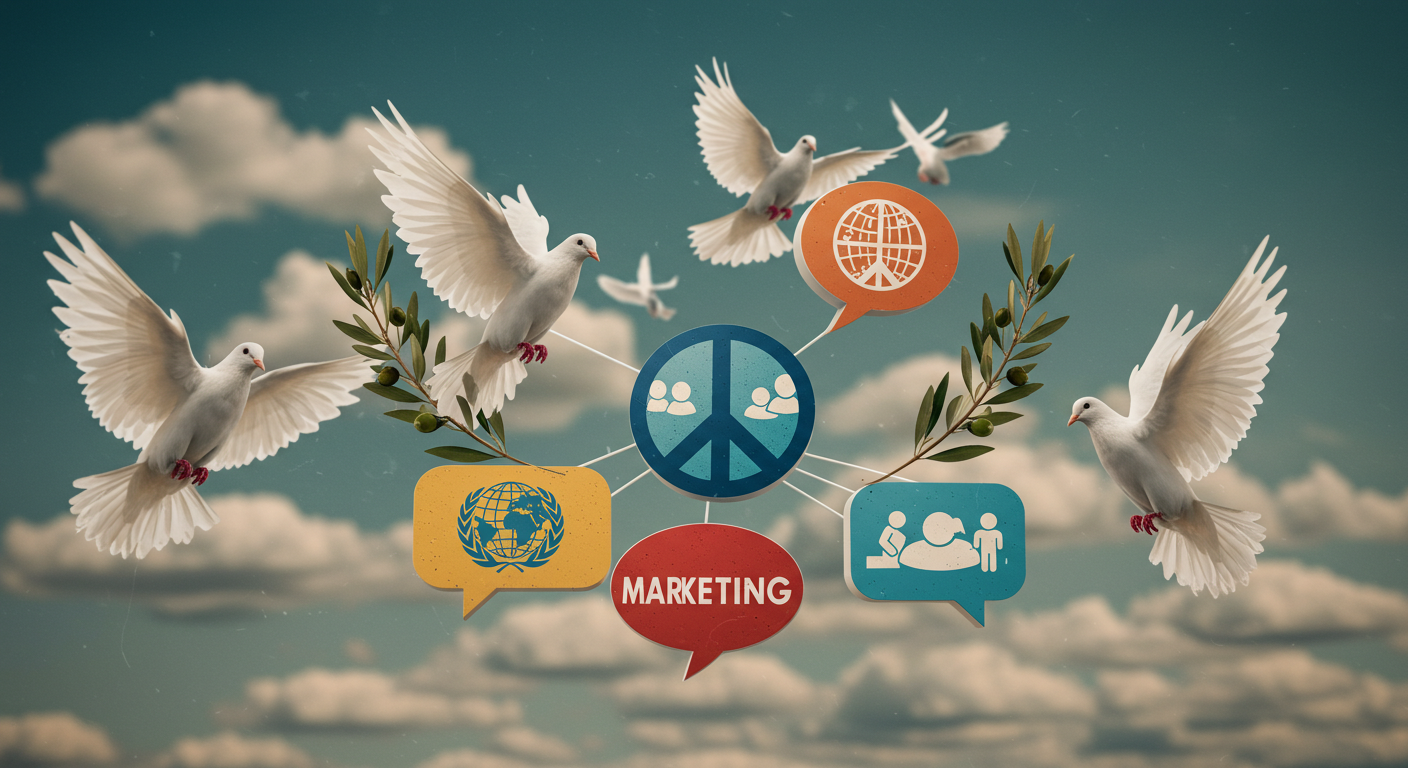In a world frequently riven by division and violence, the desire for peace goes beyond political accords and diplomatic initiatives. It pervades every aspect of our everyday existence, impacting everything from economic stability to social cohesiveness. This raises the issue of whether the tremendous powers of marketing and advertising, which have historically been used to push consumption, can be purposefully leveraged to develop a culture of peace. The answer is becoming clear: yes.
The Role of Brands: Beyond Profit to Purpose
For marketers and advertisers, the notion of “selling” peace may appear abstract. However, at its foundation, peace is a value proposition, a condition that provides significant advantages to individuals, communities, and nations. The goal is to integrate this principle into captivating narratives that appeal to a wide range of people, developing understanding, empathy, and a common commitment to peaceful coexistence.
Championing Inclusivity and Diversity: Through their advertising efforts, brands may highlight the beauty of multiculturalism and celebrate diversity. Coca-Cola’s renowned “Hilltop” ad, which features individuals from diverse countries singing in harmony, is a timeless example of fostering togetherness. In Nigeria, marketers may emphasise the diversity of the country’s ethnic groups, encouraging understanding and breaking down prejudices.
Promoting Dialogue and Understanding: Campaigns can foster open dialogue and overcome gaps. Initiatives that provide forums for people from various backgrounds to tell their stories can promote discussion across diverse populations via common cultural experiences.
Supporting Peace-Building Initiatives: Brands may directly help organisations working on peace and conflict resolution through donations, collaborations, and awareness campaigns. Uniqlo’s “PEACE FOR ALL” charity t-shirt project, which donates earnings to worldwide organisations that help victims of violence and war, exemplifies a real method corporations may help.
Read also: “Appeared to be in Nigeria”: Meta’s anti-scam feature sparks outrage and discrimination claims
Ethical Sourcing and Fair Standards: Brands that prioritise ethical sourcing and fair labour standards help to ensure economic stability and social fairness, both of which are critical foundations for peace. Companies that invest in local communities and ensure equitable treatment of employees help to create a more peaceful society.
Cause Marketing with a Peace Focus: Brands may donate a percentage of their income to peace-related initiatives, increasing awareness and motivating consumer action. Peace by Chocolate, a Canadian firm started by Syrian refugees, exhibits this by contributing a portion of its profits to peacekeeping organisations.
The Government’s Role: Marketing Peace for National Cohesion
Government, too, play an important role in fostering peace via strategic communication and public awareness initiatives.
National Unity Campaigns: The Government can create campaigns that highlight national identity while also acknowledging and welcoming diversity. These initiatives can combine compelling storytelling, imagery, and cultural symbols to instill a sense of belonging and shared purpose among all residents.
Peace Education and Awareness: Marketing may be used to promote peace education projects that emphasise the value of tolerance, empathy, and conflict resolution skills. Public service announcements can convey messages of peace and nonviolence.
Promoting Intercultural Dialogue: Governments can fund and promote projects that increase contact and understanding among different cultural and ethnic groups in the country. Advertising may highlight the advantages of cultural interaction and mutual respect.
Campaigns can highlight the concrete economic benefits of a peaceful and stable society, such as attracting investment, promoting tourism, and generating opportunities for growth.
Using Digital Platforms: Governments may use social media and internet platforms to spread good messages of peace, combat hate speech, and engage citizens in constructive debate.
Path Forward:
Promoting peace via marketing is not without problems. Authenticity is essential; consumers are quick to spot false attempts at cause-washing. Furthermore, addressing politically delicate problems necessitates considerable thought and a true dedication to the cause. Measuring the impact of peace-focused programs can sometimes be challenging.
However, the potential returns are huge. Brands and governments that engage sincerely and strategically in peace may strengthen stakeholder relationships, develop societal cohesion, and help to create a more equitable and harmonious world. As marketers and advertisers, we have a unique chance to transform transactional interactions into strong drivers for positive change, one great tale at a time. The International Day of Living Together in Peace serves as a powerful reminder of this obligation, as well as the limitless potential of our creative capacity to promote the valuable value of peace.







Comment
No comments found.